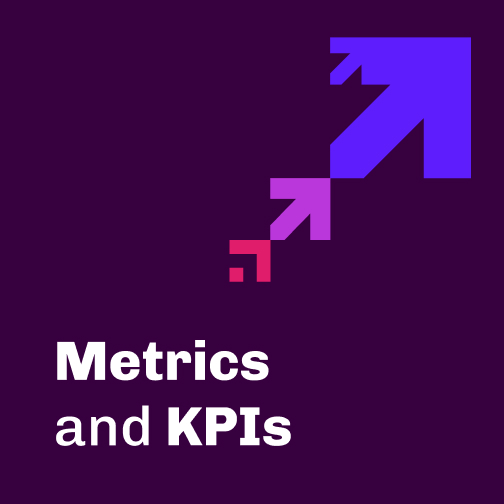Scholarships Policy
Policy Statement
Removing financial barriers ensures talented individuals from all backgrounds can contribute to a diverse and thriving community, transforming lives and fostering equality
To achieve this, the School is committed to offering generous scholarships that significantly reduce fees, directly, but also through partnerships with external organisations.
This policy provides clear guidelines for scholarship eligibility, application processes, and decision-making, ensuring transparency and fairness in expanding access to education.
Principles
- Meritocracy: Awarding scholarships based on individual merit and academic excellence.
- Equality: Providing equal opportunities for all students to apply for and be considered for scholarships.
- Diversity: Encouraging a diverse range of candidates to apply by offering various scholarships tailored to different backgrounds and abilities.
- Accessibility: Making information about scholarships easily accessible to all potential applicants.
- Transparency: Clarifying the criteria, processes, and decision-making involved in the award of scholarships.
- Need-Based Support: Allocating funds to support students who demonstrate financial need.
- Recognition: Honouring achievements in various domains through a range of scholarships that cater to differing talents and strengths.
- Accountability: Ensuring that funds are allocated responsibly and effectively to maximise benefit to students.
- Fairness: Maintaining an impartial and unbiased process for assessing scholarship applications.
- Encouragement: Motivating students to strive for academic and personal growth through financial incentives.
- Sustainability: Establishing scholarships as a sustained offering, ensuring long-term assistance for students.
- Continuous Improvement: Regularly reviewing and improving the scholarships policy to meet evolving needs and uphold the values of the School.
Regulatory Context
This Policy has been developed in line with the applicable laws, regulations, regulatory advice, and sector best practices, including the following:
| Authority | Name | Url |
|---|---|---|
| Quality Assurance Agency (QAA) |
Advice - Admissions, Recruitment and Widening Access
|
Redirect |
| Office of the Independent Adjudicator (OIA) |
The Good Practice Framework
Principles and operational guidance to support HE providers to develop and follow fair processes for complaints and appeals. |
Redirect |
| Information Commissioner's Office (ICO) |
Guide for higher education institutions
Provides guidance for higher education providers on their obligations under data protection law. |
Redirect |
Eligibility Criteria for School Scholarships
The School’s scholarships webpage provides:
Applicants must meet the eligibility criteria. They may apply for more than one scholarship but can hold only one at a time. If awarded multiple scholarships, they must choose one. The School reserves the right to modify or remove scholarships and will update its Scholarship page at https://edit.sutton.institute/scholarships accordingly. Clear and detailed scholarship information helps applicants understand the criteria, process, and deadlines, ensuring transparency and fairness. Limiting the number of scholarships per student promotes equitable support distribution, while updates to the webpage ensure accuracy. |
Selection Process for Awarding Scholarships
Scholarships are competitive and limited to the number specified in the scholarship overview. All applicants will be assessed fairly by the Scholarship Panel against the award criteria. The Panel's decision is final. Setting a limit on scholarships ensures fairness and manages resources effectively. Assessing all applicants against the same criteria guarantees impartiality, while making the Panel's decision final upholds the integrity of the process. |
Scholarship Panel
All scholarship applications are sent to the Admissions Team. The Admissions Team processes and forwards these applications to the Scholarship Panel. Unless specified otherwise, the panel will include:
The panel will review each application based on the criteria and make decisions on scholarship awards once per semester, before fees are due. Successful applicants will be notified of their award and the associated terms and conditions. Centralising applications through the Admissions Team and using a diverse panel ensures a fair and comprehensive review process. The panel’s composition and review schedule help maintain transparency and adherence to scholarship criteria, while timely notifications keep applicants informed. |
Opportunities for External Scholarship Awards
Applicants who are ineligible for the School’s scholarships may apply for external opportunities, including:
A list of external scholarships is available at https://edit.sutton.institute/scholarships Providing information on external scholarships offers additional avenues for support and ensures that applicants have access to various funding opportunities beyond those offered by the School. |
Terms and Conditions of Scholarship Awards
Students receiving scholarships must sign an agreement outlining the terms and conditions. Failure to meet these terms may result in the scholarship being withdrawn and students becoming liable for payments, including tuition fees. Students must thoroughly read and understand these terms before registering. Ensuring students are aware of and agree to the scholarship terms helps prevent misunderstandings and potential financial liabilities. For general questions about scholarships, students should contact the Admissions Team. |
The following metrics will be measured and regularly reviewed as key performance indicators for the School to ensure the effectiveness of this policy and associated operations.

Applicant Satisfaction with Scholarship Process
Conduct surveys to achieve at least 85% satisfaction among scholarship applicants regarding the application and awarding process. Ensures the process is clear and equitable, meeting applicants' needs and expectations. |
External Partnership Growth
Track the number of new partnerships with external organisations for scholarships annually, aiming for at least 3 new partnerships per year. Expands opportunities and supports the goal of partnering with external organisations. |
Scholarship Application Processing Time
Measure the average time from application receipt to decision, aiming for processing within 4 weeks. Reflects efficiency and effectiveness in managing applications, contributing to a smooth process for applicants. |
Scholarship Fundraising Targets
Set and achieve annual fundraising targets for scholarship funds, aiming for a 10% increase in funds raised each year. Supports the sustainability and expansion of scholarship offerings. |
Scholarship Utilisation Rate
Measure the percentage of available scholarships that are awarded each academic year. Aim for a 95% utilisation rate. Ensures scholarships are effectively used and supports the goal of expanding educational opportunities. |
